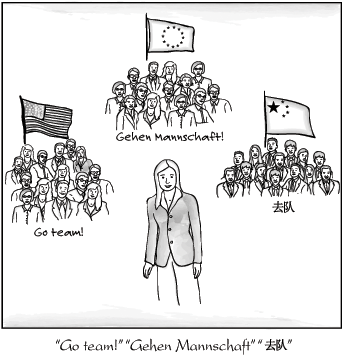Chapter 10. Developing Effective Teams

Teamwork is no accident. It is the by-product of good leadership. | ||
| --John Adair | ||
Developing effective teams is hard work and requires effective leadership. In conducting Information Process Maturity assessments for many years and working with numerous publications organizations on designing new processes, instituting project management best practices, and developing business metrics, I’ve had many opportunities to observe effective and ineffective organizations. So much of an organization’s effectiveness is dependent on leadership that it’s not surprising that organizations with strong, competent leadership are almost always more successful.
An effective leader, however, does not work in isolation. He or she develops an effective team that assumes responsibility for achieving business, organizational, and personal goals. The leader helps define the goals, especially by understanding the priorities of the larger organization, and communicates these goals to the team. The leader ensures that the people assume responsibility for meeting goals and understand the urgency with which they must be achieved. The leader helps to motivate the team both by supporting their activities and ensuring that those activities are going in the right direction. He or she ensures that team members don’t get stuck in endless debate, especially when the matters debated ...
Get Information Development: Managing Your Documentation Projects, Portfolio, and People now with the O’Reilly learning platform.
O’Reilly members experience books, live events, courses curated by job role, and more from O’Reilly and nearly 200 top publishers.

